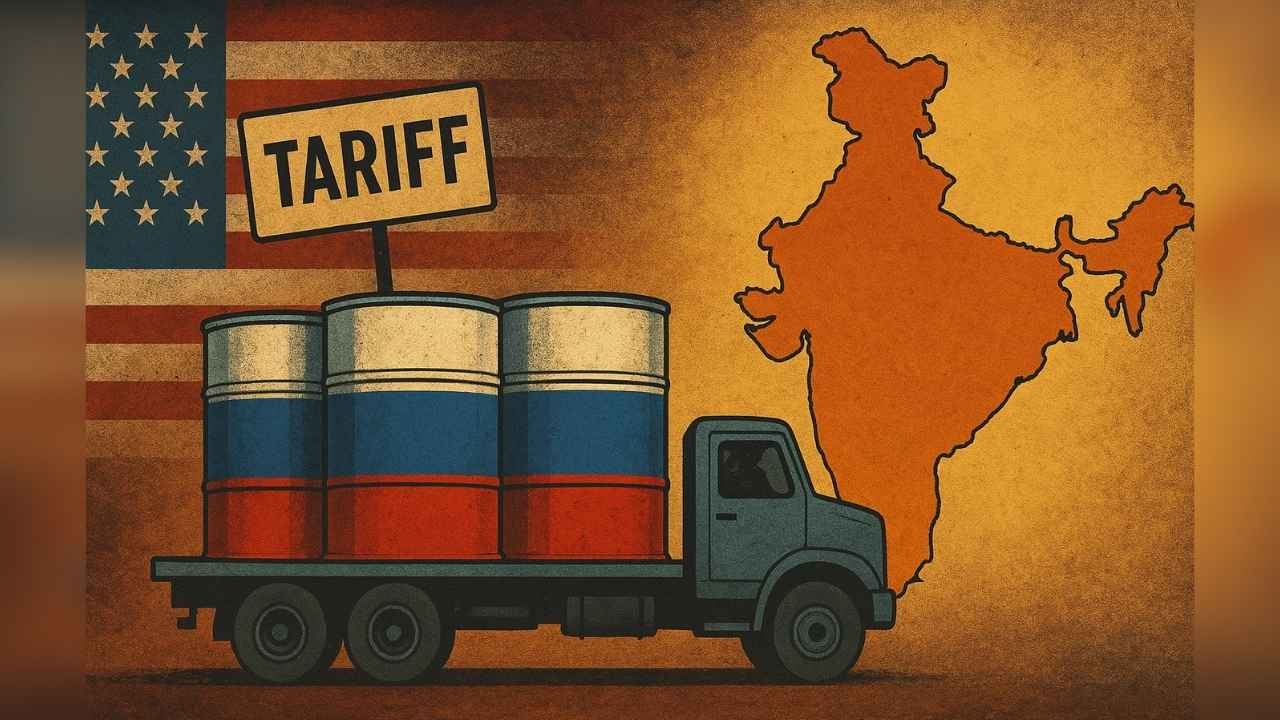India resists US pressure, secures cheaper Russian oil amid tariff row
22 Aug 2025 13:49:51

On Wednesday, July 16, Rutte urged leaders in Beijing and Delhi to press Russian President Vladimir Putin to take peace negotiations seriously. Rutte said, “If you are the President of China, the Prime Minister of India, or the President of Brazil, and you continue to trade with Russia and buy their oil and gas, then you know, if the man in Moscow doesn’t take the peace negotiations seriously, I will impose 100 per cent secondary sanctions.” This is the second instance where the West has threatened tariffs on these nations for dealing with Russia.
Secondary sanctions are basically the economic penalties imposed by countries like the US on individuals, companies, or governments that engage in trade with a sanctioned nation. In this case, Russia is the nation with which the US has a long-standing rivalry. In the ongoing Russia-Ukraine war, the US has extended its support to Ukraine by providing various kinds of military hardware. Subsequently, US and EU nations have imposed sanctions against Russia and Russian companies.
Meanwhile, the latest impositions from Trump include a 50 per cent increase in the tariff, which consists of an additional 25 per cent levy on top of the previously announced 25 per cent.
How did Russia respond?
In a counteraction to the increased tariffs, Russia laid down 5 per cent charges despite the pressure and sanctions on the latter from the US. Deputy trade representative of Russia to India, Evgeniy Griva, said that “There will be a 5 per cent discount, subject to negotiation, on Russian crude oil purchases to India.” Griva also added that, “Despite the political situation, approximately the same level of oil will be imported by India.” He said, “As for discounts, it’s a commercial secret. I think, because it’s usually just dialogue between businessmen and approximately 5%. It’s fluctuating, but usually it’s plus-minus 5%.”
Import of Russian oil and gas by the European Union
Despite the US’s attempts to isolate Russia and limit its economic power, European member countries continue to import large quantities of Russian fossil fuels, often spending more on these imports than on financial aid to Ukraine. According to estimates from the Centre for Research on Energy and Clean Air (CREA), EU member states bought €21.9 billion (£18.1 billion) worth of Russian oil and gas in the third year of the war, even though several initiatives are underway to reduce Europe’s reliance on Russian energy.
One critique noted, “Purchasing Russian fossil fuels is, quite plainly, akin to sending financial aid to the Kremlin and enabling its invasion. It’s a practice that must stop immediately to secure not just Ukraine’s future, but also Europe’s energy security.” In 2024 alone, the EU spent 39% more on Russian fossil fuel imports than it earmarked for aid to Ukraine. Notably, this aid figure excludes military and humanitarian contributions.
At the Munich Security Conference, during a session hosted by German economic daily Handelsblatt, Indian External Affairs Minister S. Jaishankar stated that Europe must understand India cannot have a view of Russia that mirrors Europe’s. He reiterated that India continues to purchase Russian oil despite Western sanctions and emphasised that India and Russia have always maintained stable and friendly ties and that Moscow has never harmed India’s interest.
All the above stances reflect one unified message: the Trump administration’s tariff impositions are unlikely to deter sovereign nations in a rapidly evolving multipolar world.
Conclusion
The recent move by the United States to hike tariffs on Indian exports, pushing them up to 50%, is nothing short of economic arm-twisting. Washington’s attempt to ‘punish’ India for buying affordable Russian oil lies useless; the clarity and confidence with which India has responded to the USA’s attempt to arm-twist India has resulted in Instead of bowing to external pressure, New Delhi has chosen to put national interest above foreign dictates. This is the mark of a sovereign Narendra Modi’s firm, pragmatic, and unwilling-to-compromise-the-dignity-of-its-people government.
Article by

Kewali Kabir Jain
Journalism Student at Makhanlal Chaturvedi National University of Journalism and Communication